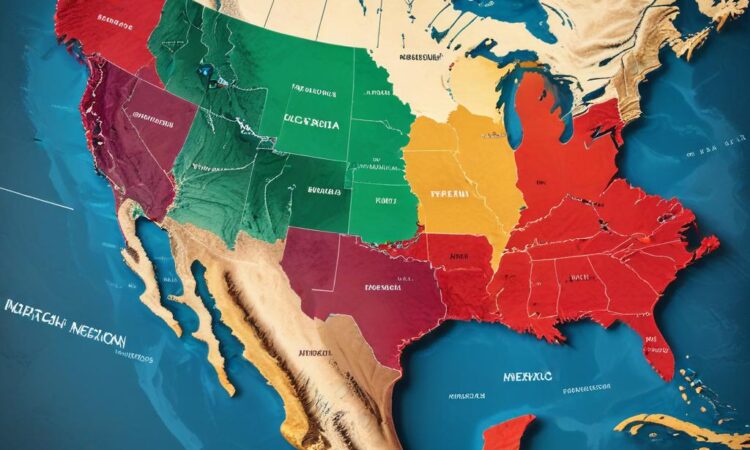Trade Turmoil: Trump’s Tariffs to Slam Canada and Mexico
Okay, folks, let’s talk trade – specifically, the kind of trade that’s about to get a whole lot messier. The OECD (that’s the Organisation for Economic Co-operation and Development, for those playing along at home) is predicting some serious economic headwinds for Canada and Mexico thanks to those pesky tariffs President Trump slapped on steel. And we’re not talking a little breeze here; we’re talking a full-blown economic hurricane.
The prediction is pretty blunt: Trump’s tariffs are going to really hurt the economies of Canada and Mexico – more than almost anywhere else. Why? Because these two countries are, shall we say, *pretty big* steel trading partners with the US. We’re talking decades-long relationships, billions of dollars in trade, and a whole lot of integrated supply chains. Think of it like this: you’ve got a finely-tuned machine, and someone’s just thrown a wrench into the works. Except this wrench is made of, well, steel, ironically enough.
The OECD’s report paints a pretty grim picture. They’re forecasting a noticeable drop in GDP growth for both countries. We’re talking real numbers here, folks, not just some abstract economic theory. This means less money in people’s pockets, potentially fewer jobs, and a general economic slowdown. It’s not exactly a recipe for a booming economy, is it?
Now, you might be thinking, “Okay, so what? Tariffs happen. It’s just business.” And to some extent, that’s true. But this isn’t your average tariff spat. The scale of the impact predicted by the OECD is significant. This isn’t just about some niche industry feeling a pinch; we’re talking about the potential for widespread ripple effects across entire economies. And those ripple effects could easily reach beyond just Canada and Mexico.
Think about the interconnectedness of global trade. If Canada and Mexico’s economies slow down, it’s going to have knock-on effects on other countries that trade with them. It’s like a domino effect, only instead of dominoes, it’s entire national economies. And nobody wants to be the country that triggers a global economic domino effect. That’s just bad news for everyone.
So what’s the takeaway here? Well, it’s pretty clear that these tariffs aren’t some harmless economic blip. They have the potential to cause some serious damage, and not just to Canada and Mexico. The long-term consequences remain to be seen, but the OECD’s predictions are a serious cause for concern. It’s a reminder that trade isn’t just some abstract concept; it’s about real people, real jobs, and real economic consequences.
This isn’t just about numbers on a spreadsheet; it’s about people’s livelihoods. It’s about the families who depend on the steel industry in Canada and Mexico. It’s about the businesses that rely on that industry to function. And it’s a stark reminder of how easily carefully constructed economic relationships can be disrupted by protectionist policies.
The situation is complex, and there’s no easy solution. But one thing is certain: the OECD’s forecast should serve as a wake-up call. We need to think carefully about the consequences of protectionist measures and the potential for unintended, and potentially devastating, repercussions on the global economy.
This situation highlights the delicate balance of international trade and the significant impact even seemingly isolated policy decisions can have. The interconnected nature of modern economies means that actions taken in one country can have far-reaching consequences, affecting livelihoods and economic stability across borders. This underscores the need for careful consideration and collaboration in shaping trade policies that promote mutual benefit and sustainable growth.
It’s a complicated situation, and there are many different perspectives and opinions out there. But the OECD’s report provides a clear and concerning outlook on the potential consequences of these tariffs. It’s a reminder that trade is a complex and interconnected system, and that decisions made in one country can have a significant impact on others. We need to continue to monitor the situation and work towards solutions that promote fair and balanced trade for all.
Ultimately, the future remains uncertain. However, the OECD’s forecast serves as a vital warning, highlighting the potential for significant negative economic impacts and underscoring the need for careful and collaborative solutions to navigate these challenges.

